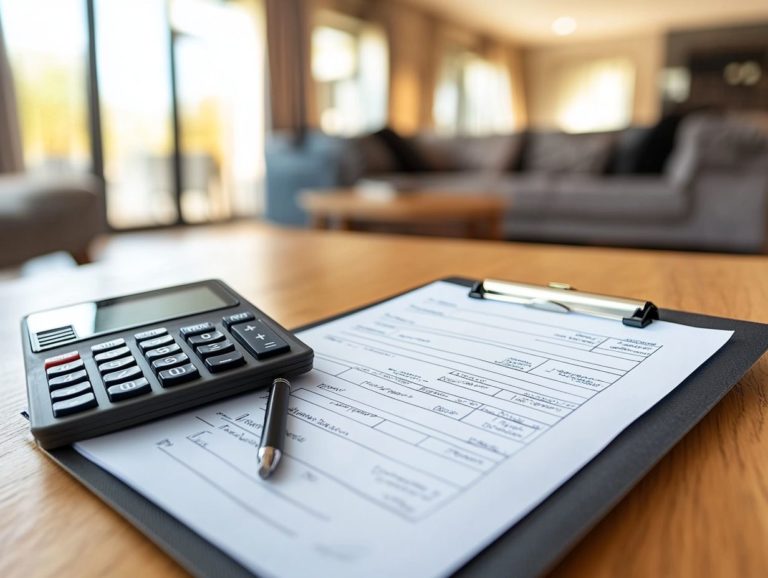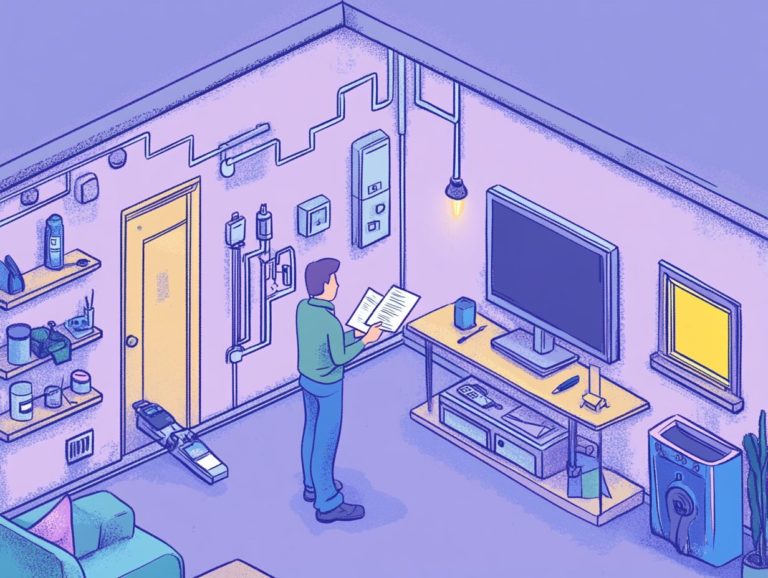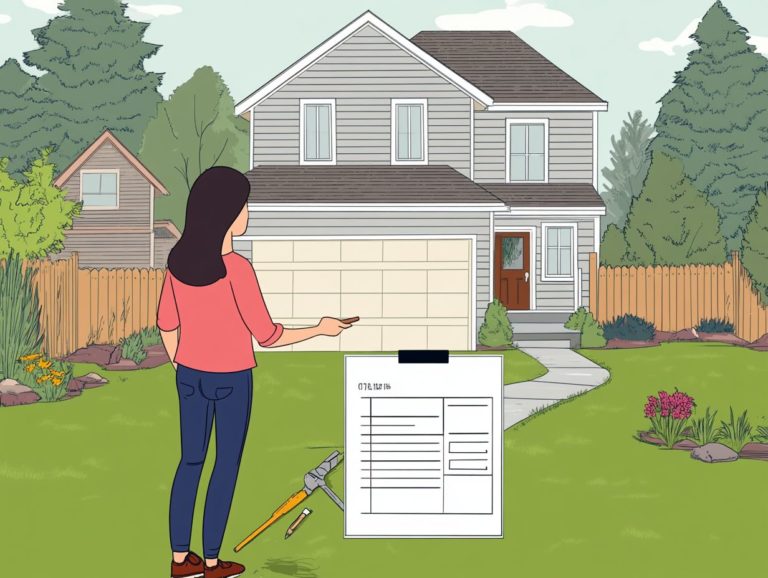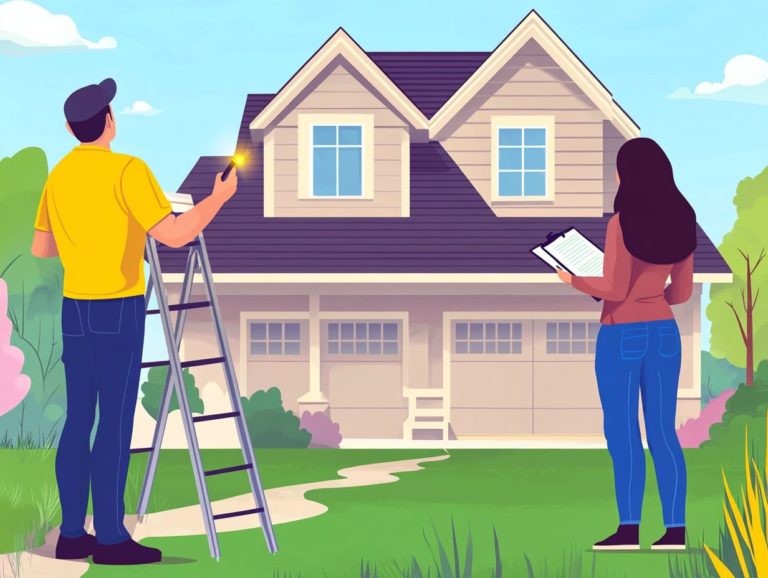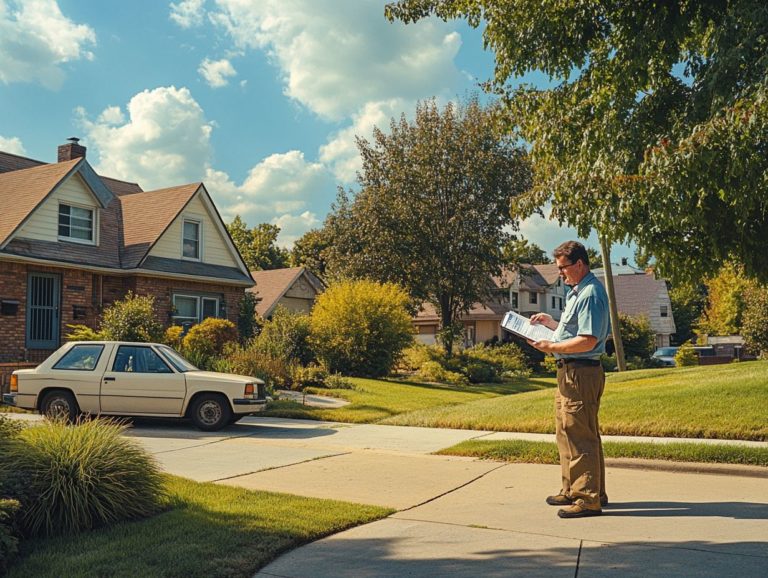The Importance of Home Inspections for New Homeowners
Stepping into homeownership, you ll find that understanding home inspections can truly make all the difference.
A home inspection isn t merely a formality; it s a vital process that uncovers potential issues and guarantees your new home is safe and compliant. Knowing what to expect during the inspection and how to address any findings will empower you throughout the journey.
Prepare to navigate the realm of home inspections with confidence and peace of mind.
Contents
Key Takeaways:
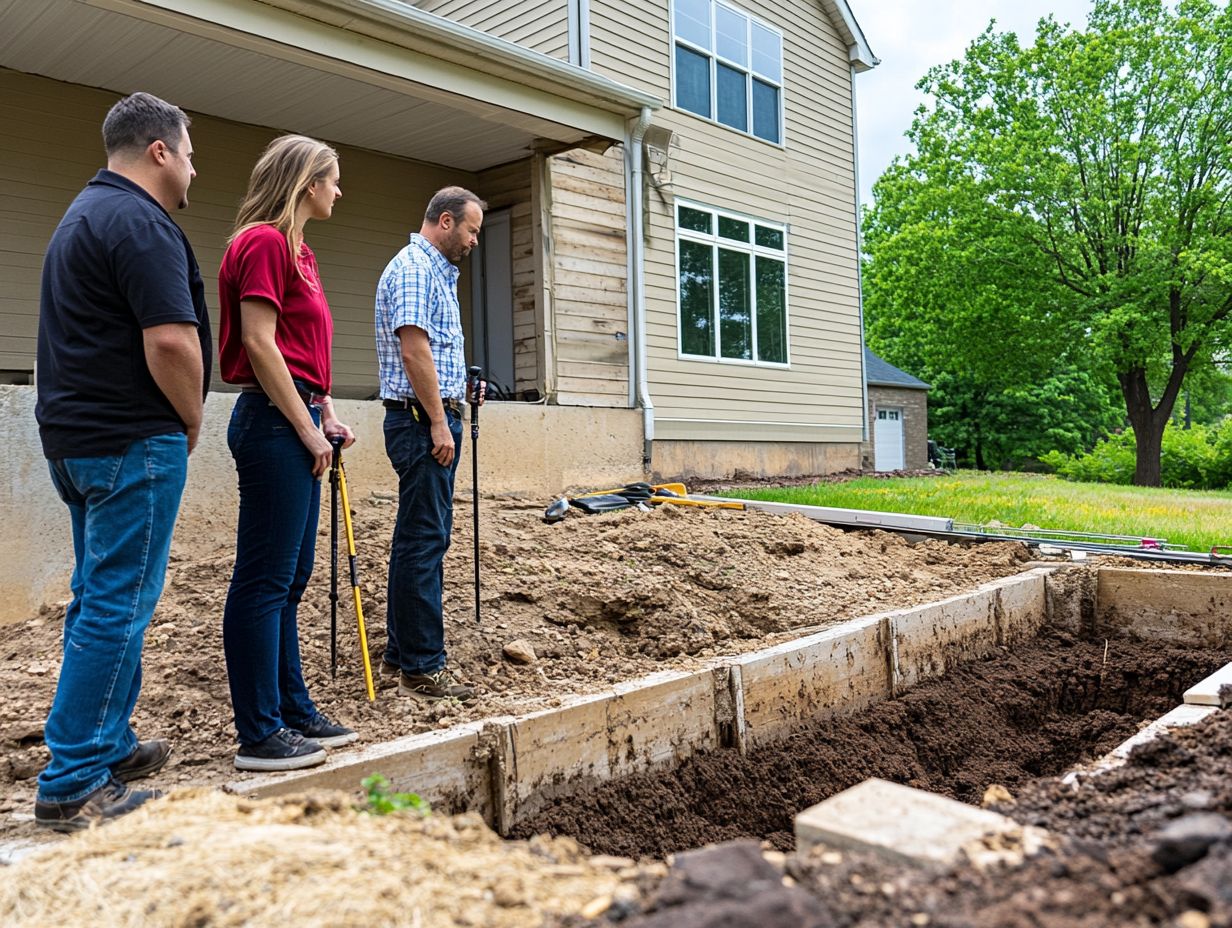
- Home inspections provide vital information.
- They help identify potential issues.
- Preparation is essential for success.
Understanding Home Inspections
Understanding the details of home inspections is essential for you as a prospective homeowner. It offers invaluable insights into the property’s condition and potential safety risks, highlighting the importance of home inspections for property buyers.
A comprehensive inspection reveals immediate structural issues, like heating, ventilation, and air conditioning (HVAC) system malfunctions, faulty electrical outlets, and concerns such as air quality, mold, and pests.
This knowledge enables you to make informed decisions and helps you sidestep any potential buyer’s remorse.
What is a Home Inspection?
A home inspection is a thorough evaluation of a property’s condition, carried out by a qualified inspector. They examine various critical aspects, including the structure, systems, and overall safety of the home.
This process typically includes assessments of plumbing, electrical systems, roofing, HVAC units, and even the foundation. It is designed to pinpoint potential issues that may arise.
There are several types of inspections tailored to meet different needs, such as FHA loan inspections, crafted for unique financing requirements.
The inspection report you receive is invaluable. It details the current state of the property and highlights areas that require immediate attention and long-term maintenance.
This essential documentation enables you to make informed decisions, negotiate necessary repairs, or adjust your offer based on the property’s condition.
Why are Home Inspections Important?
Home inspections are your best defense against costly surprises! They safeguard you against potential safety risks and unforeseen issues that could lead to significant financial strain, commonly referred to as buyer’s remorse.
These assessments offer insights into the property’s condition, equipping you with the knowledge necessary for effective negotiations. When you uncover hidden problems through a comprehensive inspection, you gain a distinct advantage, allowing you to request crucial repairs or negotiate discounts with sellers.
The findings from a home inspection play a pivotal role in identifying the right home insurance options, as certain issues can impact policy costs and coverage requirements.
By revealing costly repairs, you can avoid unexpected expenses, ensuring that your investment remains both secure and well-informed.
The Process of a Home Inspection
The home inspection process entails a meticulous examination of several key components within the property.
You ll want to look closely at structural integrity, HVAC systems, electrical outlets, and factors affecting air quality, such as mold and pest infestations.
This thorough assessment is designed to uncover potential issues before you finalize your purchase, ensuring you make an informed decision.
What to Expect During a Home Inspection
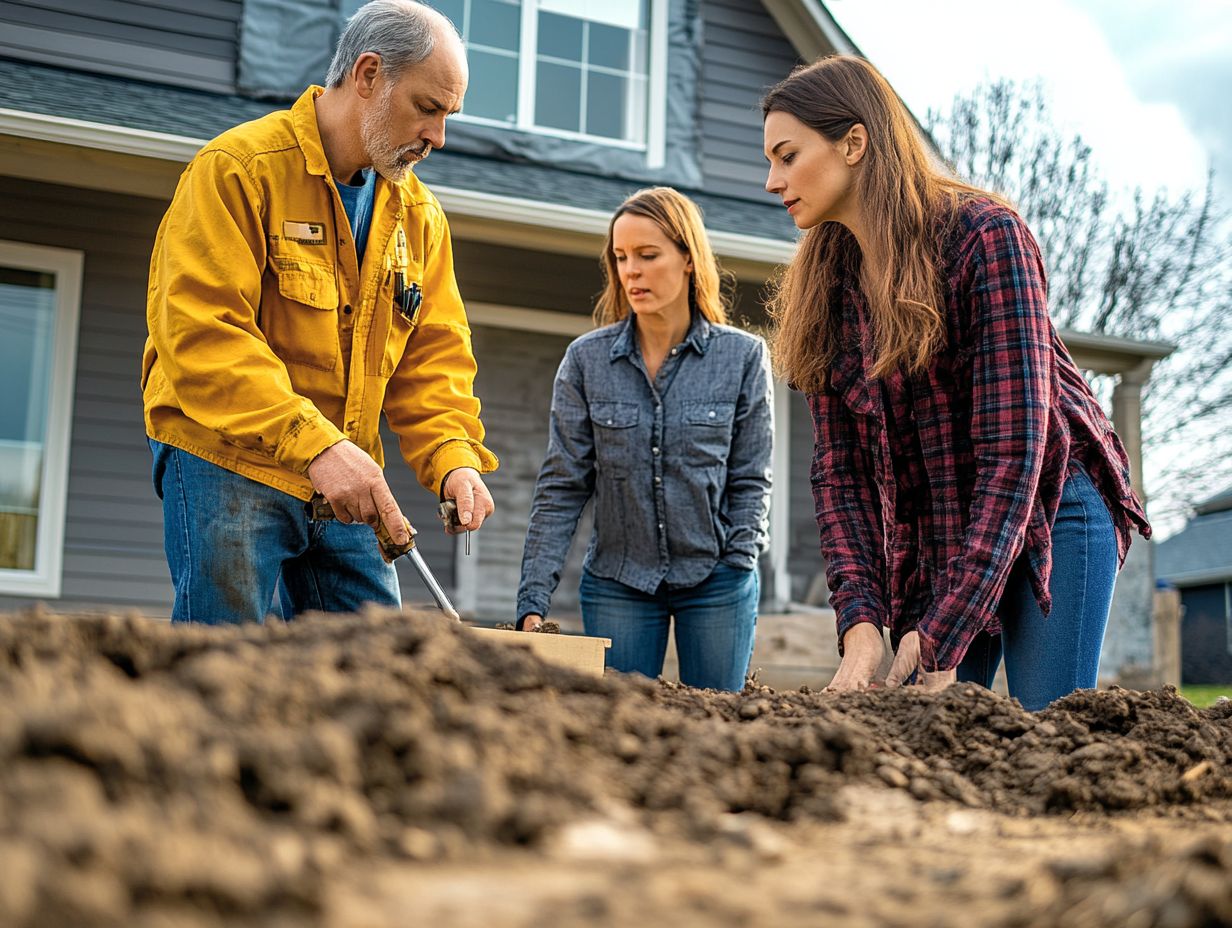
During a home inspection, you can expect a thorough examination of the property, ending with a clear report about its state that highlights any issues or areas of concern.
This assessment typically lasts between two to four hours, focusing on critical components of the home, including the roof, foundation, plumbing, electrical systems, and HVAC units.
The inspector’s role is crucial; they identify potential hazards and maintenance needs that can significantly strengthen your negotiating position.
By providing a comprehensive analysis, the report becomes an invaluable asset, enabling you to make informed decisions about your investment. It helps you decide whether to proceed with the purchase, request necessary repairs, or renegotiate the sale price based on the findings.
Common Areas Inspected
Common areas inspected during a home inspection include the roof, foundation, HVAC systems, plumbing, electrical outlets, and areas prone to mold and pests. Each of these elements is vital for ensuring the overall safety and functionality of your home.
A thorough evaluation of the roof helps uncover potential leaks or structural weaknesses, which are essential for protecting your entire property. Similarly, the integrity of the foundation is critical; any issues here can lead to significant repair costs and safety concerns.
The HVAC systems, including both heating and cooling, require careful assessment to ensure they operate efficiently, contributing to your comfort. Plumbing systems need scrutiny for leaks and proper drainage, as water damage can lead to serious mold issues.
Don’t overlook the electrical outlets; they deserve attention to prevent hazards and ensure compliance with current regulations. Identifying pest-infested areas is essential for safeguarding your home against structural damage and health risks.
Benefits of Home Inspections for New Homeowners
Home inspections offer numerous advantages for new homeowners, highlighting the importance of home inspections to pinpoint potential issues that could escalate into costly repairs later.
Inspections also ensure your home meets safety standards and complies with building codes. Understanding the importance of thorough home inspections provides valuable insights into future maintenance costs, helping you make informed decisions about your investment.
Identifying Potential Issues
A primary benefit of a home inspection is its ability to identify potential issues, which can be crucial in preventing expensive restoration projects and providing leverage during negotiations.
By uncovering hidden problems like outdated wiring or plumbing leaks, you gain insights that can significantly influence your purchasing strategy. This knowledge assists you in budgeting for future renovations and negotiating more effectively, potentially leading to lower offers or seller concessions.
When you present documented findings from a reputable inspection report, you can advocate for necessary adjustments to address costly repairs, transforming a daunting financial burden into a strategic advantage in your home-buying journey.
Ensuring Safety and Compliance
Home inspections are vital in ensuring that your property meets safety standards and complies with local regulations. Understanding the importance of a thorough home inspection helps identify potential risks that could impact your homeowner’s insurance prospects.
These thorough evaluations safeguard the well-being of future residents and enhance the overall value of your property.
By uncovering issues like faulty wiring or structural problems, a detailed inspection enables you to make informed decisions. This knowledge allows you to negotiate better terms and secure favorable insurance options.
Ensuring compliance with safety regulations can save you from costly repairs in the future, contributing to a secure living environment.
If you’re considering a property purchase, investing in a comprehensive home inspection is not just wise; it’s essential for your financial security and peace of mind.
Don t risk your investment get that inspection done!
Ready to protect your investment? Schedule your home inspection today!
Key Takeaways:
- Home inspections provide a thorough analysis of property conditions.
- They help identify potential issues early, preventing costly repairs.
- Inspections ensure safety and compliance with regulations.
- They enhance your negotiating power and financial security.
How to Prepare for a Home Inspection
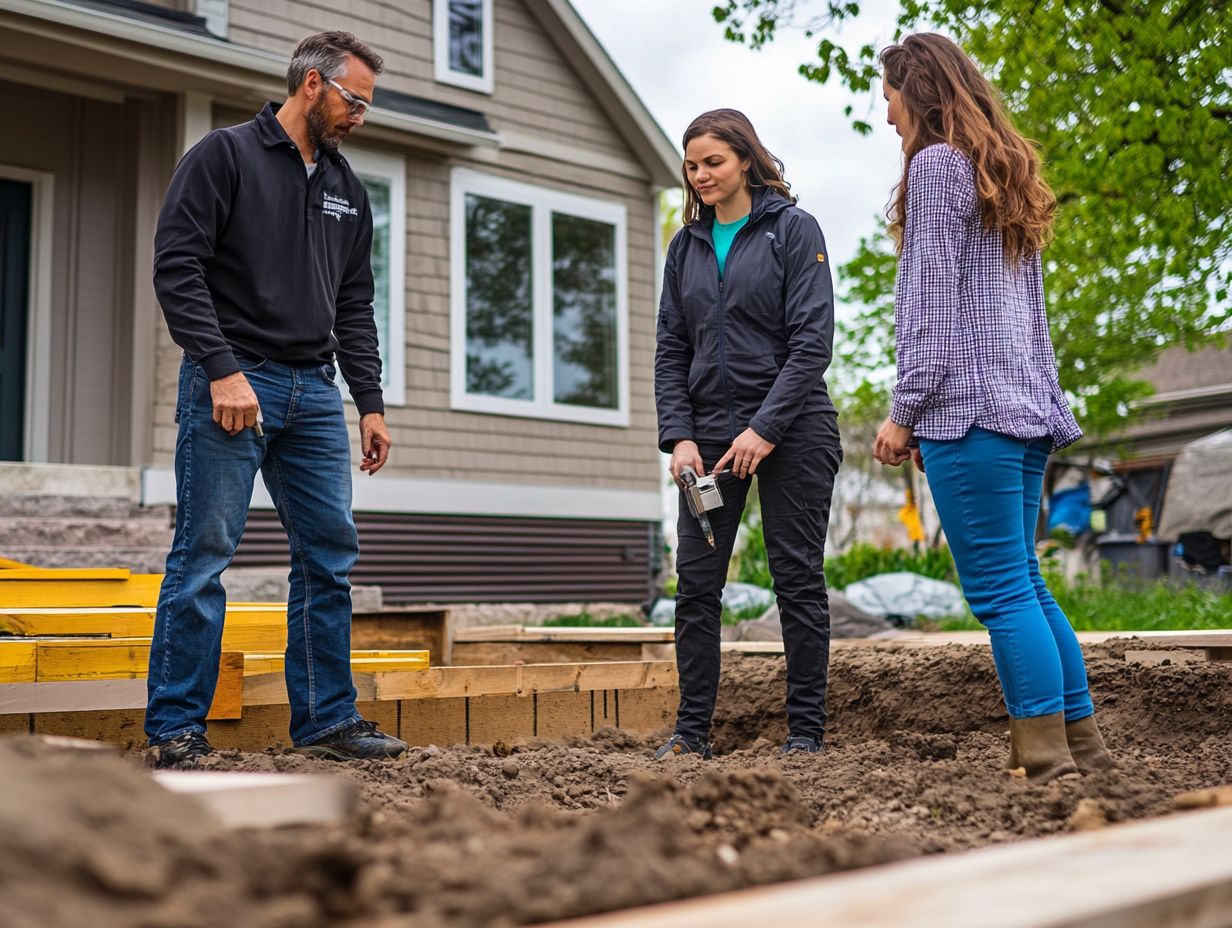
Preparing for a home inspection requires essential steps that ensure a smooth process. By following these guidelines, you help the inspector check the home carefully, avoiding unnecessary delays.
Tips for a Smooth Inspection Process
To ensure a seamless home inspection, make sure that every area of the property is easily accessible. This includes attics, crawl spaces, and garages. Address potential red flags ahead of time.
Clear away clutter, move furniture, and ensure entry points to these spaces are easy to navigate.
Gather all relevant documents. This includes maintenance records, warranties, and past inspection reports, which can provide the inspector with valuable context.
Effective communication with the inspector is vital. Be upfront about any known issues or concerns to lead to a thorough evaluation.
By taking these proactive steps, you can expedite the inspection process and showcase your commitment to transparency.
Addressing Issues Found During a Home Inspection
It’s crucial for buyers to tackle issues found during a home inspection! This process highlights areas needing attention and emphasizes the importance of inspections for home safety, offering valuable opportunities for negotiating repairs or reconsidering the home’s price based on the inspector’s insights.
Negotiating Repairs and Renegotiating Price
Right after your home inspection, seize the chance to negotiate repairs or even renegotiate the price. Use the inspection report to address issues that could lead to costly restoration projects.
This process starts with a careful review of the report, which highlights crucial findings like structural concerns, plumbing issues, or electrical faults.
With this information, confidently approach the sellers, presenting a compelling case for necessary repairs or how they justify a price reduction.
During negotiations, remain flexible. Sellers may have a different view on the value of the repairs.
By fostering open communication and demonstrating the seriousness of the identified problems, you enhance your chances of reaching a mutually beneficial agreement that protects your investment.
Frequently Asked Questions
What is a home inspection and why is it important for new homeowners?
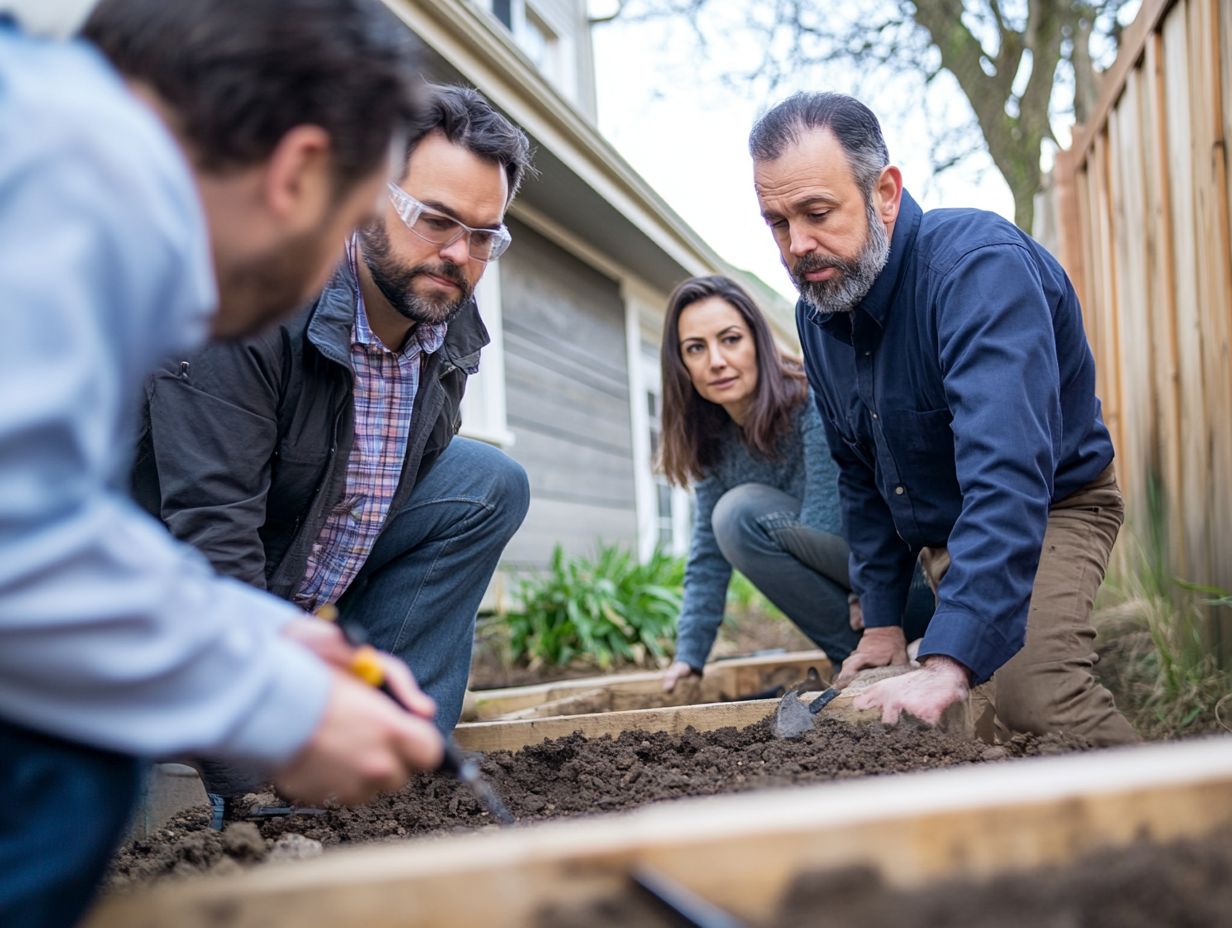
A home inspection is a thorough examination of a house’s condition, typically conducted before a sale. New homeowners need it to gain important insights about their new home, emphasizing the importance of a home inspection for buyers, which helps them make informed decisions about the purchase and potential repairs.
When should a new homeowner schedule a home inspection?
A new homeowner should schedule a home inspection as soon as their offer has been accepted, typically within 7-10 days. This allows enough time for the inspection and for any potential issues to be addressed before closing the sale.
What does a home inspection cover?
A home inspection typically covers the structure, exterior, roof, plumbing, electrical, heating and cooling systems, interior, and insulation and ventilation. It may also include additional services like radon testing, mold inspection, and termite inspection.
Who should conduct a home inspection for new homeowners?
A qualified and experienced home inspector should conduct the inspection. Research and choose a certified home inspector to ensure a thorough and unbiased assessment of the property.
What happens if the home inspection reveals issues?
If the home inspection reveals issues, the new homeowner has several options. They can negotiate with the seller to make repairs before closing, ask for a price reduction to cover repair costs, or back out of the sale altogether if the issues are severe.
Is a home inspection necessary if the house is brand new?
Yes, a home inspection is still necessary even for a new house. New homes might seem perfect, but a qualified inspector can spot issues that could turn into bigger problems later, highlighting the role of home inspections for first-time buyers.
Wouldn’t you want to ensure your investment is truly safe and sound?

